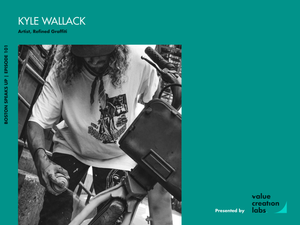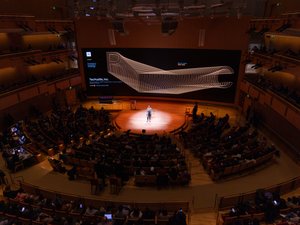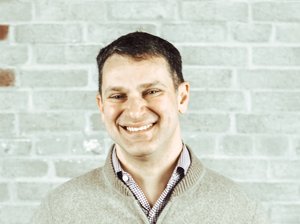The moment Jacqueline Liebergott announced she was stepping down as Emerson College’s president after an 18-year reign, I rolled my eyes and muttered, “Good luck.” There I sat in the school’s Iwasaki Library, overlooking the set of “Will & Grace,” thinking, “This is what she built.” She had established the College’s new campus on the Boston Common, and had thereby been touted for revitalizing the city’s historic Theater District. The new president didn’t stand a chance.
What I didn't know was the new president had already become a fixture on campus. Strolling down Boylston Street with his daughter, he was looking at Emerson from a parent’s perspective, familiarizing himself with the student body years before he would be inaugurated in September 2012.
Lee Pelton left behind a legacy of his own at Willamette University, where he served as president for 13 years. While there, he raised $131 million and more than tripled the amount of undergraduate applicants. He expanded the faculty by 25 percent, as well as established and funded four academic Centers of Excellence.
He had completed a phase of his presidency, however, and had found himself asking, “Should I start a new phase, or think of doing something else?” He chose the latter option and returned to the city he claims he “will never leave again.”
The day Pelton was inaugurated, he announced he was committing himself to five initiatives: academic excellence, innovation, financial stewardship, global reach and engagement with nearby communities. A mere five months later, and he has already made swift strides toward each goal.
“We want to become the world’s leading institution of higher learning in arts and communication,” Pelton says, sitting in his office 14 stories above the Boston Common. To do so, he knows they need to expand and build stronger relationships in Asia and Africa, all while strengthening the program they have in the Netherlands and Los Angeles.
Last year, Emerson broke ground on a new $110-million, 10-story facility in Los Angeles--a facility Berklee College of Music students might soon have the chance to live in. Pelton announced a partnership with Berklee during his inauguration speech. Although started as an online instructional partnership, he acknowledges, “It’s one of several partnerships we want to have with Berklee. Both schools have a wonderful trajectory going forward into the future.”
More than 2,500 students are taking online courses through BerkleeMusic. Now, through this partnership, individuals who might not have the opportunity to study at Emerson, also have a chance. By January 2014, Pelton says seven to 10 courses will be available.
“Higher ed has reached a tipping point in respect to online education,” Pelton says, admitting he sees online education not disrupting the residential college experience, but rather complementing it. “Colleges and universities will develop different learning communities that exist side by side.”
And those different learning communities can all play a role in lowering the cost of education. Pelton acknowledges, however, the public is still unable to understand the difference between the price and cost of education.
Between 2008 and 2012, Pelton says it was four percent cheaper to attend a four-year, private school. Students might cringe looking at the cost of tuition, but what they don’t take into account is the amount of institutional aid they are receiving. At Emerson, the rate is discounted to nearly 30 percent, according to Pelton, who claims it costs half as much for a family that makes between $100-120,000 to send their children to Harvard than it does Northeastern, because of Harvard’s exceptional financial aid program.
“Getting a bachelor’s degree is still a bargain,” Pelton says.
That said, he is still looking for ways to minimize costs, all while looking for other ways to revamp the curriculum.
By the summer of 2014, a center for entrepreneurship and innovation is expected to be open at Emerson. The development would make Emerson the first arts and communication school in the nation to have this kind of entrepreneurship program, where faculty and students could receive the mentorship and funding necessary to bring their companies to life.
“What do we do well at Emerson?” Pelton asks. “We tell stories. We want to develop a path to turn [students’] narratives into businesses that can make money for them and add value to society.”
Pelton points to a handful of famous Emerson alumni, including Kevin Bright, the executive producer of “Friends,” and actor Denis Leary, who helped open Apostle, a TV and film production company, in 2004. Both embody that entrepreneurial spirit--an entrepreneurial spirit that will hopefully permeate the entire campus soon.
As it stands now, there are minimal barriers between what Emerson students are learning inside the classroom and what they are doing outside the classroom. “Work is play and play is work for Emerson students,” Pelton says. Yet, even with that mentality in mind, Pelton still describes the environment as more cooperative than competitive.
“There’s a liveliness of personality that I find absolutely infectious and delightful,” Pelton says. “Emerson students have the ability to light up a room wherever they are.”
He isn’t immune to the student body’s quirks, however, which are often described in two simple words: “So Emerson.”
“The morning is not the friend of Emerson students, and neither is math,” Pelton says, laughing.
As I sit across from him at 10 a.m., already on my third cup of coffee, I can't disagree. The only thing I could disagree with were the assumptions I made when I first heard a new president would be coming on board. Pelton might have had a legacy to fill, but, within this short period of time, he has already started creating his own.
Related:
Featured Photos Courtesy of Emerson College








